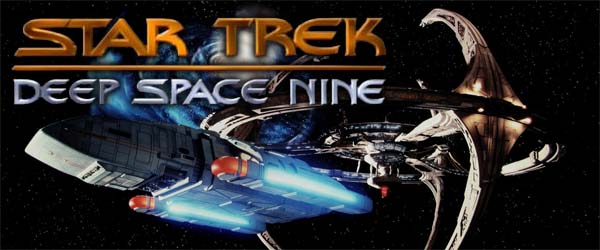
In the age of streaming and binge-watching here in the year 2023, long-form serialized television is now ubiquitous. Every network and streaming service has wanted its own blockbuster TV shows. Whether it's AMC's The Walking Dead and Breaking Bad, HBO's Game of Thrones, Sci-Fi's Battlestar Galactica, Netflix's House of Cards and Stranger Things, History's Vikings, and so forth, it seems that every big new show outside of sit-coms has a heavily-serialized format. Procedural dramas are going the way of the dinosaur.
Serialized, long-form television may be commonplace now, but back in the 1990's, it was virtually unheard of outside of daytime soap operas (such as Dallas and Dynasty) and the occasional network mini-series. At least, this was the case in the United States. British television has a much longer track record of serialized story-telling. A big part of why serialized television was uncommon was that the producer(s) of network syndicacted shows didn't have as much control over when its affiliates decided to air the shows, or how heavily they would market and advertise it. Furthermore, the networks or affiliates could change the time slot of the show pretty much at a whim. Viewership, therefore, would be much more fickle and fractured. Audiences would pop in and drop out. Expecting the audience to have seen every previous episode in preparation for this week's episode was a dangerous and risky expectation for a production studio. It's easy to lose viewers if none of them know what's going on.
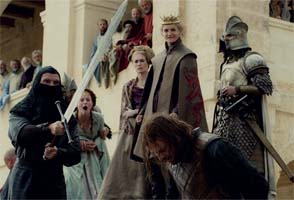 - Game Of Thrones, copyright HBO
- Game Of Thrones, copyright HBO
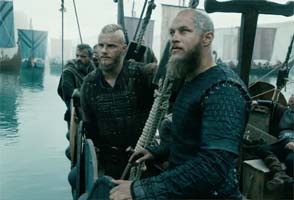 - Vikings, copyright History Channel
- Vikings, copyright History Channel
Highly serialized, long-form drama are the norm for modern networks and subscription television services.
As I mentioned in the previous essay, this was the case with me. I was in elementary school and middle school during DS9's run, and I missed a lot of episodes in the first couple seasons, despite wanting to watch the show. Missing so many episodes meant that I had very little idea what was going on when I would watch, and so I mostly lost interest in the show. If my dad was watching it, and I was there, I'd watch it, but I wasn't planning my day around it.
Looking back now, that sort of serialized story-telling is now ubiquitous and expected, and so it's easier to recognize that Deep Space Nine was truly innovative and ahead of its time in this regard.
Long-form story-telling
Serialized story-telling wasn't alien to Star Trek. Deep Space Nine premiered in 1993, the same year as the sixth season of Next Generation. By this time, The Next Generation had several story threads that had recurred over the course of a season, or over multiple seasons -- as well as several attempted overarching plot threads that were dropped.
As early as the first season of Next Generation, Q had become a recurring antagonist, and his "judgement" over the human race was established as a recurring plot thread. Heck Q's judgement of humanity was originally depicted as the framing mechanism for the entire show! It was scaled back in the following seasons due to the general poor reception of the first season, and the fact that John de Lancie just works better in a more whimsical and comic role.
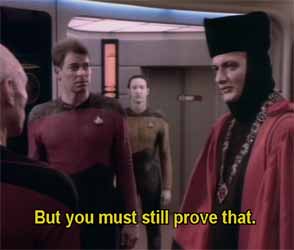 - TNG "Encounter At Farpoint", season 1, episode 1
- TNG "Encounter At Farpoint", season 1, episode 1
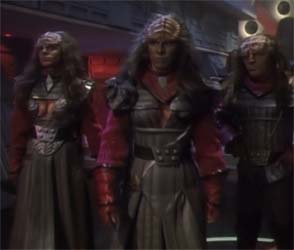 - TNG "Redemption, Part I", season 4, episode 26
- TNG "Redemption, Part I", season 4, episode 26
TNG had several recurring plot threads.
The final two episodes of Next Generation's first season, "Conspiracy" and "The Neutral Zone", seem to have been part of an abandoned attempt at more long-form story-telling. Both seem to be trying to establish some new threat to the Federation (and possibly a shared threat between the Federation and other rival powers such as the Romulans). I think the original idea was for this to become an overarching storyline for the entire series. But the thread from "Conspiracy" was completely dropped, and the destroyed colonies referenced in "The Neutral Zone" were re-written to be retroactive foreshadowing of the Borg's appearance in season 2.
[More]
cddb26c9-ca5a-4327-b199-d0d00dec522b|0|.0
Tags:Star Trek, Star Trek: Deep Space Nine, Federation, Starfleet, progressivism, humanism, secularism, religion, fundamentalism, fascism, terrorism, war, trans-gender, Worf, Odo, Quark, Moogie, Ishka, Bajor, Dominion, Founder, Changeling, Jem'Hadar, Cardassian, streaming television, Game of Thrones, Battlestar Galactica, the X-Files, Babylon 5, Buffy the Vampire Slayer, The Sopranos, Lost, Twin Peaks
At the top of my list of favorite game franchises, sits 2 seemingly unlikely companions: one is the first 4 Silent Hill games developed by Konami's internal "Team Silent" studio; the other is the series of "Souls-Borne" games created by From Software. If these 2 franchises are not my number 1 and number 2, respectively, then they are both definitely in my top 3, with Sid Meier's Civilization being the only other real contender.
On the surface, Silent Hill and the Souls-Borne games don't seem to have a lot in common, nor would one necessarily think that they would appeal to overlapping audiences. In some senses, it would seem that they couldn't be further apart. Silent Hill is a series of slow-paced psychological horror games with linear narratives, that emphasize puzzles and encourage the player to run away from threats and avoid the games' poorly-developed combat mechanics. The Souls-Borne games are frenetic action-RPGs that barely have any plot at all, and which are built entirely around combat mechanics, and which are infamous for their difficult gameplay. But despite the radically divergent styles of gameplay that these 2 franchise offer, they both contain similar themes and are open to similar artistic interpretations, which appeal to me, personally because of a particular aspect of my core beliefs and identity.
You see, I'm an atheist. More specifically, I consider myself to be a "strong atheist", "anti-theist", and "secular humanist", among other labels. Not only do I not accept any of the various god-claims due to insufficient evidence; I also positively believe and assert, with confidence, that there are no gods at all. Now, I'm sure that I've just invited a slew of commenters who will try to convert me or share their beliefs for why their personal god is real, but I'm not here to argue about the theology. Besides, I've pretty much heard it all. Not just on the internet, but also from extended family. God of the gaps, personal incredulity, watch-maker, Pascal's Wager, Kalam and other various Cosmological Arguments. I've heard it all -- or at least most of it. And I reject it all.
I am as confident in my belief that there is no god, as I am in my belief that there is no Santa Clause (and for many of the same reasons). So unless you think you can convince me that Santa Clause is real, you're probably wasting your time trying to convince me about your god.
View this entire essay in video format on YouTube.
But my atheism goes a bit further. I'm also an anti-theist, and I believe that religion and religious institutions are also dangerous and do more harm to society than good.
And based on my own personal reading of both Silent Hill and the Souls-Bornes, it seems that both game franchises kind of agree with me. [More]
e41c0e7e-50b9-4d3d-ad3d-eedbb712815d|10|2.1
Tags:atheism, religion, god, faith, Silent Hill, From Software, Demon's Souls, Dark Souls, Bloodborne, Elden Ring, Star Trek, original sin, Christianity, Judaism, curse, Way of White, Healing Church, blood ministration, orphanage, cult, abortion
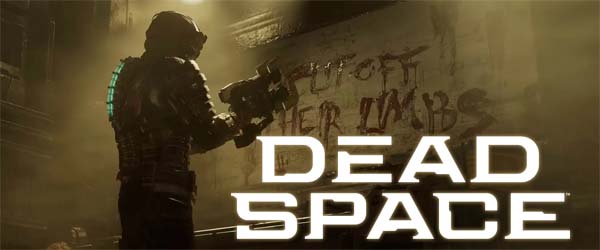
I'm gonna be perfectly honest with you right up front: I'm coming into this review with a negative bias. This is a remake that does not need to exist. Dead Space is only 10 years old, is an HD game that still looks fine. It is designed around gameplay conventions that are still standard practice today, and so the original still holds up well, outside of some mildly-dated presentation. I get the desire to remake or re-imagine older games that actually are dated, like Resident Evil 2 or Final Fantasy VII, which were both completely redesigned with modern gameplay conventions and (in especially in the case of Final Fantasy VII) bold new creative and narrative decisions. I would also understand the desire to go back and take another stab at more recent games which are really good, but which may have been virtually unplayable due to technical problems. Fallout: New Vegas comes to mind.
But this recent fad of rote remasts or remakes of PS3-era games that were already highly-polished and still modern-feeling (and thus hold up well today) just feels like lazy, cynical cash-grabs to me. Games like Dead Space, The Last of Us, and Mass Effect just feel like completely unnecessary remakes -- especially if they're going to be direct recreations of the original with little-to-no creative liberty. Heck, even the Demon's Souls remake feels unnecessary. I would much rather than Sony and FromSoft just release a digital version of the PS3 game on the PS4 and PS5 storefronts and keep the servers going. Maybe even patch the PS3 game with some of the ease-of-use features that were added for the PS5 remake. I'm still on the fence about Silent Hill 2 and Resident Evil 4, since those remakes might take enough creative liberty to justify their existence (assuming they don't shit the bed in doing so). As such, I did not buy this remake of Dead Space retail. I bought a used, second-hand copy in order to save a few bucks and to not give money to EA (and so as not to seem to give implicit support for this trend of unnecessary remakes).
Coming off of Callisto Protocol, Dead Space feels like a masterpiece.
All that being said, having just recently come off of playing through The Callisto Protocol, the difference is night-and-day. This Dead Space remake is, by far, the much better game. It's a good remake of a good game, and it's a good survival horror game in its own right.
Mostly how I remember it
Dead Space is a pretty straight-forward, by-the-numbers recreation of the original game, with only a few creative liberties taken. It's still a 3rd person shooter built around the challenge of shooting off the limbs of zombies and monsters instead of aiming for the center of mass or going for head shots. The story, mission structure, map, and many set pieces will all be completely recognizable to anyone who played the original game, even though some things here and there might be a little different.
As such, pretty much any review of the original Dead Space still holds mostly true here. All the things that I liked about the original game are still present. Unfortunately, I never reviewed the first Dead Space on this blog, so I can't just link you to that. I'll have to just summarize my feelings here.
Isaac is fully voiced and has more agency compared to the original.
The enemies are threatening, and the combat is challenging. The non-traditional weapons, combined with kinesis and stasis and creative enemy design, provide a lot of variety and strategy in combat that goes far beyond just "shoot bad guy in the head". The setting and lighting really help to sell the sci-fi horror aesthetic. The in-universe, diegetic, holographic interface holds up well and never pulls the player out of the immersive environment. The Ishimura itself still feels like a believable, functional place. The story is derivative, cliché, and cringe-worthy in some parts, but I do like the religious undertones and parody of Scientology. [More]
fd3c4399-577e-4a0d-b05d-256753797daf|1|5.0
Tags:Dead Space, Electronic Arts, Motive, Visceral, remake, horror, survival horror, science fiction, shooter, zombie, necromorph, dismemberment, religion, Scientology, Unitology
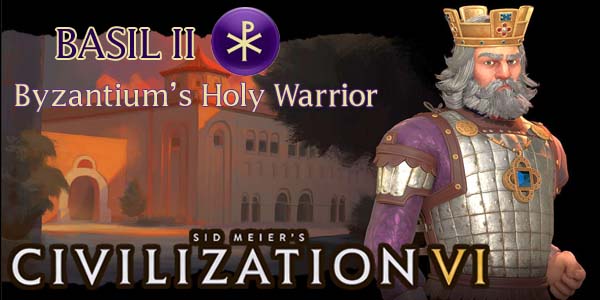
Firaxis has released the final update for its "New Frontiers" DLC Pass for Civilization VI. I have attempted to create guides for each new civilization included in the packs, but there is one civilization that I just didn't have time to cover when it was first released. That civilization was part of the September 2020 update, and it is the Byzantine Empire, lead by Basil II.

It looks like "New Frontiers" represents the end of the Civilization VI life cycle. If that is true, then don't fret. If I get enough demand from my Patrons, I'll also write guides for the "New Frontiers" game modes, or go back and create / update guides for legacy leaders. We also have new games such as Old World and Humankind coming out. I'll be playing both games when they release on Steam, and can also write guides for those games, if my supporters ask for it.
By the third century AD, the Roman Empire had expanded to control much of Asia Minor and the Eastern Mediterranean. The cities in the eastern Greek, Asia Minor, and eastern African provinces tended to be larger and more developed than settlements in the west, owing largely to the Greek and Macadonian empires that had preceeded Rome's occupation of the regions. This made these cities far wealthier than most western cities, and in 330 AD, Emperor Constantine relocated the Roman capital to the city of Byzantium due to its strategic location at the epicenter of trade routes between Europe and Asia, and between the Mediterranean and Black seas. The empire was later split into Western and Eastern administrative partitions, each with its own emperor. When Rome was sacked in 476 and the Western Roman Empire collapsed, the Eastern Empire in Constantinople continued to thrive.
It can be argued, thusly, that the Roman Empire survived until the fall of Constantinople to the Ottoman Turks in the 15th century. However, even though the Byzantine Empire can trace its authority directly to Imperial Rome, and it retained much of the legal and administrative framework inherited from the Roman Empire, eastern culture had begun to diverge from western culture before even the fall of Rome. Most citizens of the Eastern Empire may have considered themselves to be "Roman", but they spoke Greek instead of Latin. The architecture utilized ornate domes and spires as opposed to the austere columns, arches, and triangles of Latin architecture. Religious practices in the east also gradually transitioned away from the dogmatic practices of the Catholic Church until the Schism of 1054 formally established the Eastern Orthodox Church. It is, thus, equally accurate to say that the Byzantine Empire came to represent its own unique culture, independent of the Western Roman Empire.

Basil II Porphyrogenitus was a life-long ruler of the Eastern Roman Empire. He was coronated as co-emperor along with his brother when he was just two years old, and ascended to the status of senior emperor at the age of 18, ruling until his death almost 50 years later. For most of his reign, he personally lead his armies into battle against Anatolian rebels, Bulgaria, the Fatimid Caliphate, and the Kingdom of Georgia, securing the empire's borders in both the west and east. Despite being away from Constantinople for so long, he also found time to distinguish himself as an administrator, reforming tax and property laws to protect poor land-owners from exploitation by wealthier elites. He also married off his sister to Vladimir I of Kiev, securing an alliance with the Kievan Rus and converting them to Orthodox Christianity. His reign was so successful, that the Empire prospered for decades after his death, despite his successor emperors being considered largely inept by both contemporary writers and modern historians. Though he is considered a national hero by the Greeks, he is known as "Basil the Murderer" by Bulgarians.
Basil II favors aggressive religious play backed up with a powerful mounted army and navy. He should seek to convert or conquer rival holy cities as soon as possible, then crush or convert his remaining rivals.
[More]
9717627d-e9ed-44d7-b203-9c3945c77bcd|2|5.0
Tags:Sid Meier's Civilization, Civilization VI, Byzantine Empire, Byzantium, Basil II, porphyrognnetos, taxis, hippodrome, tagma, dromon, Divine Guardian, entertainment complex, amenity, cavalry, heavy cavalry, navy, religion, holy city, prophet
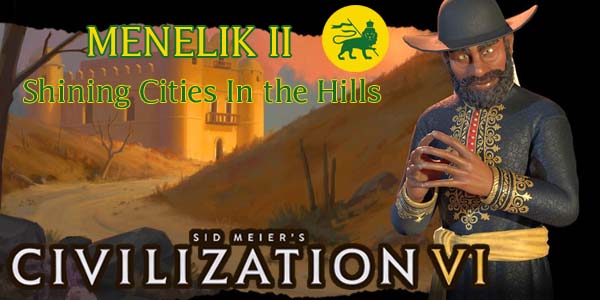
Firaxis recently released the second civilization and leader pack for its New Frontiers DLC Pass. This pack includes alternate versions of the leaders Teddy Roosevelt and Catherine de Medicci, and the new Secret Societies game mode. The main part of the new DLC, however, is the new civilization, Ethiopia, lead by Menelik II. I expect to have the guide for Lady Six Sky of the Maya published within the next couple of weeks. In the meantime, a preview of the Maya guide is already available to my Patrons via Patreon.
Paleontologists believe that Ethiopia was one of the earliest homes of anatomically modern homo sapiens, and that humans crossed through Ethiopia on their way to the Middle East and Asia. Ethiopia is the source for some of the oldest known examples of stone-tipped human weapons and tools, dated at 279,000 years old. Ruins in Bale Mountains suggest the earliest known example of permanent human residence at high altitudes. The earliest kingdoms in Ethiopia were founded out of Semetic traditions, and the region has been heavily influenced by both Islam and Christianity, making Ethiopia a unique melting pot for all three of the Abrahamic religions. Ethiopia and Liberia were the only two African nations to retain their sovereignty during the European colonizations of Africa, and held off an invasion from colonial Italy in 1896 before eventually being conquered by fascist Italy in the lead-up to World War II.
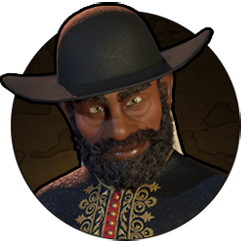
Emperor Menelik II helped to modernize Ethiopia, and also establish Ethiopia as an independent nation after defeating the first Italian invasion in 1896. Menelik II went on to expand Ethiopia's territory and established a Council of Ministers that served long after his death and advised at least two other emperors (and conspired to depose one of them). He adopted a strict prohibition of the slave trade within Ethiopia, and is fondly remembered by the people of Ethiopia for his tremendous benevolence to the poor.
DISCLAIMER:
Civilization VI is still a "living game". Strategies for the game (and for specific leaders and civs) may change as Firaxis applies balance patches, introduces new features, or expands the game through further DLC or expansion packs, or as the Civ community discovers new strategies or exploits. As such, the following strategy guide may change from time to time. I will try to keep it up-to-date, and will make notations whenever changes are made. I'll also post links in the official 2K forums and CivFanatics, where I'll also report any changes made. If possible and practical, I will try to retain the original content of the strategy for posterity.
I welcome any feedback or suggestions that readers wish to offer. Feel free to post on the linked forums, or by posting a comment at the bottom of the page.
This guide is up to date as of the release of the "New Frontiers" Ethiopia DLC pack (July 2020) (ver. 1.0.3.31)
Ethiopia likes to build its cities in the hills. Doing so grants access to the Rock-Hewn church, which grants faith from adjacent hills and mountains. A portion of Ethiopia's hill-folk faith will be converted to science and culture. [More]
71bcd05b-0c24-4591-ace6-ddfc06d3e3e3|0|.0
Tags:Sid Meier's Civilization, Civilization VI, Ethiopia, Menelik II, Aksumite Legacy, council of ministers, rock-hewn church, oromo cavalry, Ethiopian highlands, hill, faith, religion, culture, tourism, volcano, natural disaster, resource
|

| 12 | | | | | | | 60 | | 11 | | | | | | | 55 | | 10 | | | | | | | 50 | | 09 | | | | | | | 45 | | 08 | | | | | | | 40 | | 07 | | | | | | | 35 | | 06 | | | | | | | 30 | | 05 | | | | | | | 25 | | 04 | | | | | | | 20 | | 03 | | | | | | | 15 | | 02 | | | | | | | 10 | | 01 | | | | | | | 05 |
|